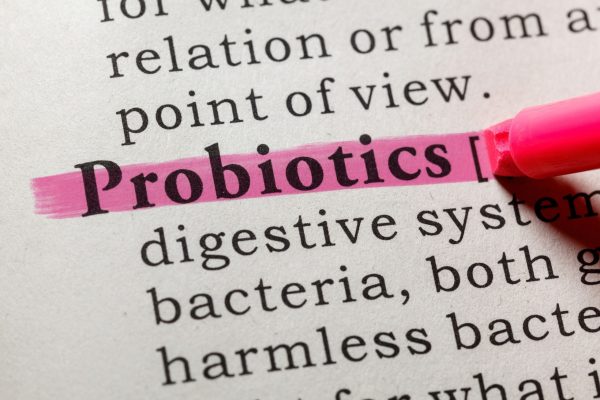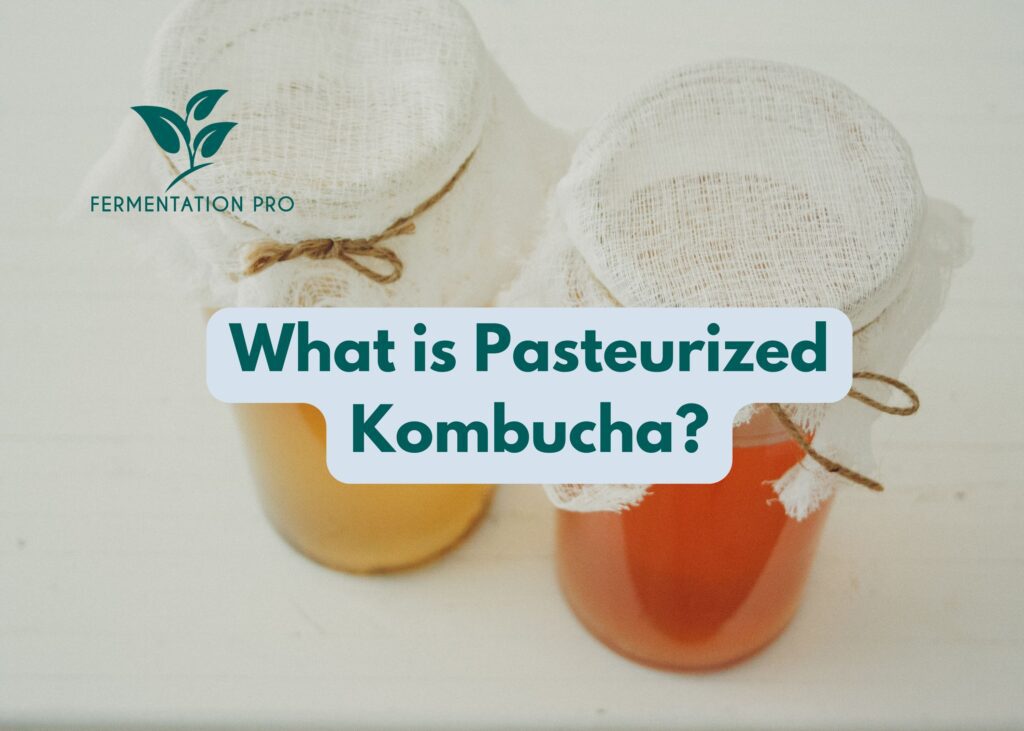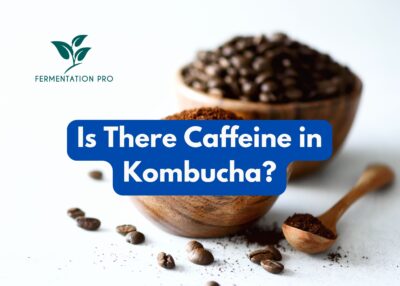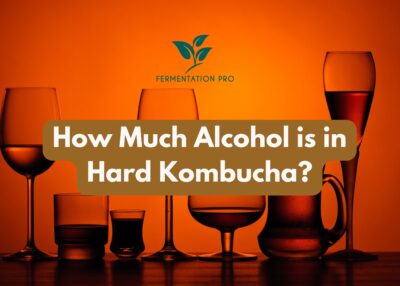Whether you go to grocery stores frequently or not, you’ve probably already seen pasteurized Kombucha somewhere in the beverage section or online. That sounds weird, isn’t it? Usually, it is the milk and alcohol products that are pasteurized for safety. So, what is pasteurized Kombucha anyway? Is it similar to pasteurized milk or alcohol?
Pasteurized Kombucha is labeled as pasteurized because it undergoes pasteurization. Essentially, it is raw Kombucha that has been heated at a specific temperature and a specific time. This aims to kill off 99% of the harmful microbes in Kombucha that can pose serious health risks to consumers.
Traditional raw unpasteurized Kombucha is safe to drink on its own. The Kombucha culture or SCOBY keeps it acidic enough to prevent harmful bacteria from damaging the Kombucha ferment. However, if not stored or brewed properly, raw Kombucha can still get contaminated and house disease-causing fungi and bacteria that can be extremely harmful to human health. Hence, many Kombucha manufacturers nowadays are opting to pasteurize their Kombucha products to make them extra safe and avoid any risks of contamination and potential health risks.
Table of Contents
Pasteurized Kombucha Taste
Although many manufacturers claim that pasteurized Kombucha tastes exactly like raw Kombucha, the truth is pasteurization kills the mix of microorganisms in the Kombucha drink. This results in a Kombucha drink that tastes relatively less acidic and fizzy compared to traditional Kombucha.
Pasteurized Kombucha Daily Dose for Consumption
As of the time of this writing, there is no recommended specific daily dose for the consumption of pasteurized Kombucha. However, the rule of thumb is to drink only 4 oz. of Kombucha three times a day or a total of 12 oz. daily.
Depending on the experience and tolerance, some long-term Kombucha drinkers may drink more than this amount. However, if you are new to drinking Kombucha, we recommend starting from 4 oz. a day and gradually increasing the amount of Kombucha until you get your desired results. This will help you avoid any digestive distress due to your body’s unfamiliarity with the drink.
What Happens When You Pasteurize Kombucha?
Pasteurizing Kombucha has become a safety measure for many Kombucha manufacturers. Some consumers also consider it as a safety standard. But what really happens when you pasteurize Kombucha?
During pasteurization, Kombucha is heated to a specific temperature at a specific time. After this, it is cooled down and stored accordingly. Although Kombucha undergoes an extreme heating process, it is not chemically transformed so you can still taste hints of the original flavor. In addition, you will still get vitamins, minerals, and amino acids from pasteurized Kombucha. However, you will not be able to get health benefits from Kombucha’s probiotics content. In the next section, we will cover the reason why.
Kombucha Pasteurization
According to PRO Engineering and manufacturing, pasteurization can be divided into two namely, low pasteurization and high pasteurization methods.
Low pasteurization heats products at a relatively low temperature of 180℉ for 30 minutes. This aims to kill off the bacteria but preserve all the healthy ingredients in the product.
On the other hand, high pasteurization uses a higher temperature to heat products and usually takes a shorter time than low pasteurization. High pasteurization can heat products up to 300℉ and usually take just seconds. After heating, Kombucha makers cool down the beverage quickly to prevent more chemical changes to the drink.
Depending on the preference of the manufacturer, Kombucha can undergo any of these pasteurization methods. Usually, homebrewers opt for low pasteurization probably because it uses lesser heat making it a safer option at home. On the other hand, manufacturers of commercial beverages often opt for the high pasteurization method.
Is Pasteurized Kombucha Probiotic?

The short answer is no. Pasteurization is no doubt an effective method for sterilizing beverages, however, it can’t target specific strains of bacteria. That means that all bacteria whether good or bad are removed during this process. Hence, when Kombucha undergoes pasteurization, both disease-causing bacteria and good bacteria, also known as probiotics, are removed.
Raw Kombucha is a popular wealthy source of probiotics. Probiotics are live microorganisms that are usually found in fermented foods and beverages like Kombucha. They offer multiple health benefits such as:
- Restored balance of gut bacteria
- Diarrhea prevention and treatment
- Improved mental health conditions
- Better heart health
- Reduced severity of certain allergies
- Reduced symptoms of certain digestive disorders
- Stronger immune system
- Weight loss
Most health enthusiasts turn to Kombucha for its probiotics and the aforementioned health benefits. If you are also drinking Kombucha for the same reason, you might want to skip pasteurized Kombucha and go for unpasteurized Kombucha. On the other hand, if you are concerned about the safety of the drink, pasteurized Kombucha is no doubt for you.
Is It Safe to Drink Unpasteurized Kombucha?
Generally, unpasteurized or raw Kombucha is safe to consume like other fermented products. When Kombucha ferments properly, it reaches a strong acidity level that is enough to prevent the growth of disease-causing microorganisms. This makes it safe to drink for healthy adults. In addition, it offers all the health benefits of Kombucha including probiotics.
So, is it better to drink unpasteurized Kombucha than pasteurized Kombucha? Well, it mainly depends on your body condition and the health benefits you want to get from Kombucha. If you are a generally healthy adult and want probiotics, then unpasteurized Kombucha may be a better choice for you. However, if you are not confident about your health condition and the suitability of unpasteurized Kombucha for your system, we highly suggest seeking your doctor’s advice for your safety and peace of mind.
To help you better understand the benefits and risks of unpasteurized Kombucha, here is a detailed guide to help you out.
Benefits of drinking unpasteurized Kombucha
Unpasteurized or raw Kombucha is a healthy fermented beverage that is well known for its amazing health benefits. This drink doesn’t undergo any heating process, so you can count on its probiotics benefits.
Below are the benefits of drinking unpasteurized or raw Kombucha.
Serves as a rich source of probiotics
Provides similar health benefits green tea
Helps detoxify the body
May reduce the risk of heart disease
May help protect against cancer
May help manage type 2 diabetes
Boosts immune system
Prevents high blood pressure
Risk of drinking unpasteurized Kombucha

Despite being acidic enough to ward off harmful microorganisms, there is still a possibility of contamination during the brewing process of Kombucha. Contaminated unpasteurized Kombucha can contain disease-causing fungi and bacteria that can cause severe health risks. Some possible side effects of contaminated unpasteurized Kombucha are:
- Infections
- Liver complications
- Allergic reactions
- Acidosis
Who should avoid unpasteurized Kombucha

Unpasteurized Kombucha contains a mix of bacteria and small amounts of substances like caffeine and alcohol. For these reasons, unpasteurized Kombucha is not recommended for the following:
- People with weak immune systems (This includes people with cancer, kidney disease, or HIV)
Unpasteurized Kombucha contains a mix of bacteria that may cause infections in people with weak immune systems. If you have underlying health conditions, always seek your doctor’s advice first before drinking unpasteurized Kombucha.
- Pregnant and breastfeeding women
Although the caffeine and alcohol content of Kombucha is low, it may still pose some risks for pregnant and breastfeeding women.
- Children
The possible bacteria contamination and the alcohol content of unpasteurized Kombucha make it risky for children to drink this beverage. If you want to give your children, 4 years old and above, a taste of Kombucha, it is best to give them pasteurized Kombucha instead of unpasteurized Kombucha.
What Does Unpasteurized Kombucha Mean?
Unpasteurized Kombucha simply means raw naturally fermented Kombucha. It is a Kombucha drink that didn’t undergo any sterilizing processes through heating or chemical means after completing its fermentation. Since unpasteurized Kombucha is not heated, it still contains a mix of good bacteria or live probiotics that is beneficial to the gut and overall health. It also contains all the nutritional benefits of Kombucha as well as small amounts of alcohol and caffeine. In addition, it is fizzy and has a distinct tangy and tart savor.
Compared to pasteurized Kombucha, unpasteurized Kombucha may offer more health benefits due to its probiotics content. However, it may not be a safe option for immuno-compromised people, pregnant and breastfeeding women, and children.
How Do You Know If Kombucha Is Pasteurized?
Usually, you can easily know if a Kombucha product is pasteurized through its label. Pasteurized products tend to include this detail in the front or back of the product bottle or packaging. In addition, pasteurized Kombucha products usually don’t need refrigeration and can be stored at room temperature. Typically, you will only need to refrigerate the Kombucha when it has been opened.
On the other hand, unpasteurized Kombucha often indicates that the Kombucha is natural and raw. Its label should also indicate the need for refrigeration. Unpasteurized Kombucha contains all the microorganisms like yeast. Not refrigerating Kombucha can cause these microorganisms to continue fermenting and make the Kombucha’s flavor more acidic. The cold temperature in the refrigerator inhibits yeast activity and preserves the flavor, maintains its freshness and consistency, and prevents Kombucha from over-fermenting.








